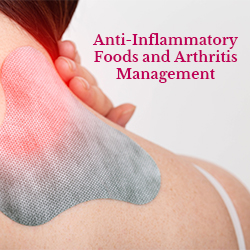After a large meal or a late-night snack, everyone has experienced the uneasy burning sensation in their chest. One of those annoying problems that can appear at the worst times and leave you feeling bloated, uncomfortable, or even depressed is acidity. But when acidity strikes, what’s actually happening inside your body, and how can you control it? To help you take control of your digestive health, we’re breaking down everything you need to know about acidity in this guide, including its causes, management strategies, and when to consult a doctor.
What is Acidity?
Essentially, acidity occurs when your stomach overproduces acid to digest food. Under normal circumstances, this acid remains in place and performs its role without fanfare. But occasionally, it may slip up into the esophagus, which then results in the burning phenomenon of heartburn. Such a condition, commonly referred to as acid reflux or acid dyspepsia, may be caused by numerous factors such as spicy foods, stress, or even some medications. It may be an isolated incident, or it could be a recurring issue, depending on your diet, lifestyle, and general health.
Causes of Acidity
Acidity has multiple causes. Stress, lifestyle choices, and food choices can all have an impact. Typical causes include the following:
- Unusual mealtimes
- Eating too much or too fast
- Foods that are full of fats, fried, or spicy
- Carbonated and caffeinated beverages
- Stress and inactivity
Foods and Drinks That Trigger Acidity
Indeed! By relaxing the lower esophageal sphincter (LES), which keeps acid in your stomach where it belongs, or by increasing the production of stomach acid, some foods and beverages can put your acidity into overdrive which includes:
- Oily and spicy foods
- Fruits with citrus
- Tea, coffee, and other caffeinated beverages
- Carbonated drinks
- Chocolate and foods heavy in fat
Lifestyle Decisions That Cause Acidity
Of course. The frequency of acidity can be influenced by your lifestyle choices. Acid reflux is more likely to occur if you have a sedentary lifestyle, heavy meals, or late-night snacks. The LES is also weakened and acid reflux is more likely to occur as a result of long-term stress, smoking, and alcohol use.
Can Medications Contribute to Acidity?
Indeed, certain drugs can cause or exacerbate acidity. NSAIDs (such as ibuprofen) are among them. A few more examples are:
- Steroids
- Antibiotics
- Some blood pressure drugs
It is best to ask your doctor for alternatives or solutions if you believe that your medication may be contributing to your acidity.
Common Symptoms of Acidity
You can detect acidity early and stop it from becoming a larger issue by being aware of the symptoms. Here are a few of the most typical signs and their possible sensations:
- Heartburn: A burning feeling in your chest, particularly after eating or while you’re lying down, is called heartburn.
- Regurgitation: The process by which food or stomach acid returns to your throat, leaving behind a bitter or sour aftertaste.
- Bloating and Burping: The full, gassy sensation that can result in frequent belching is known as bloating and burping.
- Nausea and Vomiting: If the acid in your stomach irritates your stomach lining, you may experience nausea and vomiting.
- Persistent Cough and Hiccups: Recurrent hiccups or a dry cough may be caused by long-term esophageal irritation.
- Sour Taste in the Mouth: A persistently acidic taste in the mouth, particularly after eating or while lying.
Does Acidity Get Worse with Age?
It can, indeed. The LES may weaken as we age, weakening the digestive system and increasing the risk of acid reflux in older adults. Increased acidity can also be caused by drugs and health problems associated with aging.
Treatment and Cure of Acidity
Fortunately, acidity is typically controllable! Simple lifestyle adjustments and home remedies can help with occasional episodes of acidity, but medical care may be necessary for chronic cases.
Lifestyle Adjustments for Managing Acidity
Making small changes in your daily routine can significantly reduce acidity. Try these tips:
- Eat smaller, more frequent meals.
- Avoid lying down right after eating.
- Maintain a healthy weight.
- Manage stress with yoga, meditation, or exercise.
- Elevate the head of your bed to prevent nighttime reflux.
Home Remedies for Quick Relief
For those sudden flare-ups, home remedies can offer fast relief. Here are some popular options:
- A glass of cold milk
- A teaspoon of fennel seeds
- Ginger tea
- A ripe banana
- Baking soda mixed in water
Medical Solutions for Long-Term Management
If lifestyle changes and home remedies aren’t cutting it, you may need medical treatment. This could include:
- Antacids for quick relief
- H2-receptor blockers to reduce acid production
- Proton pump inhibitors (PPIs) for long-term relief
- Surgery in severe cases (such as fundoplication)
How Trilife Hospital Helps You Manage Acidity the Right Way
When acidity begins to become a chronic issue, it’s time to address the root cause and stop using temporary fixes. Our goal at Trilife Hospital is to provide patient-centered care with a focus on long-term solutions.
Our skilled gastroenterologists collaborate with you to comprehend your symptoms, pinpoint your triggers, and develop a customized treatment strategy that meets your requirements. From advanced diagnostic testing to personalized lifestyle guidance, we are here to help you take control of your digestive health and improve your quality of life.
Conclusion
You don’t have to tolerate acidity, even though it’s common. By understanding the causes, being aware of the symptoms, and making small but important lifestyle changes, you can avoid those uncomfortable episodes. Additionally, if your acidity persists or gets worse, it may be imperative that you seek professional medical advice.
Remember that the condition of your digestive system has a big impact on your overall health. Therefore, whether through better eating habits, stress management, or professional care, taking proactive steps now can lead to a healthier, happier tomorrow.


